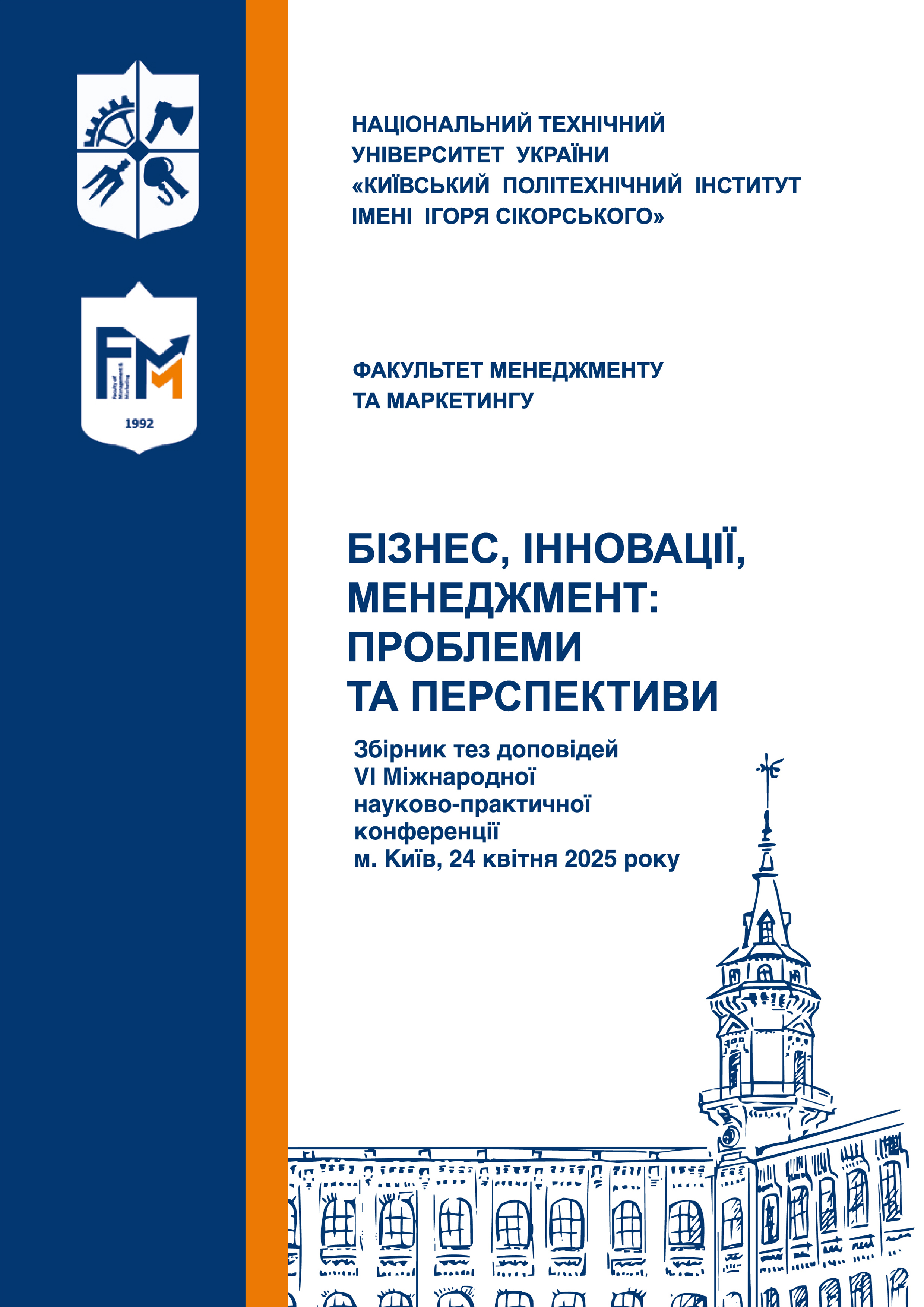CSR IN MOROCCO: MYTH OR REALITY? CSR & SME'S IN THE MOROCCAN CONTEXT
Анотація
This paper examines Corporate Social Responsibility (CSR) implementation within Small and Medium Enterprises (SMEs) in Morocco, analyzing whether CSR represents a substantive business practice or merely rhetorical concept. Through analysis of existing literature and regulatory frameworks, this study contributes to understanding the evolving CSR landscape in developing economies, particularly Morocco.
Morocco has established several legal mechanisms supporting CSR development. Law No. 11-03P (2003) created the framework for environmental protection, while the New Labor Code (2004) reinforced the country's commitment to international labor standards. The Royal Speech of 2005 emphasized investment in social progress and environmental protection as key criteria for economic policies. The National Initiative for Human Development (INDH) addressed social and economic disparities by focusing on improving living conditions and promoting sustainable development [4].
Institutionally, several bodies support CSR implementation: the Moroccan Institute for Standardization (IMANOR), the Interministerial Higher Council for Quality and Productivity (CSIQP), and Technical Standardization Committees (CTNs). International standards including SA 8000 and ISO 26000 have been adopted, with the latter aligning with the CGEM CSR Label established in 2006.
Moroccan SMEs demonstrate distinctive features affecting their CSR engagement. They typically operate with limited financial and human resources compared to large corporations, constraining their ability to implement comprehensive CSR strategies. However, these enterprises often possess more flexible organizational structures, enabling quicker decision-making and adaptation. Additionally, Moroccan SMEs maintain deep connections within local communities, making their CSR efforts more locally impactful.
The research identifies several motivations driving CSR adoption among Moroccan SMEs. Many are influenced by the personal values of owners or managers, including ethical considerations and religious principles. Building positive reputation and gaining trust within local communities represent significant motivators. Additionally, increasing pressure from international customers demanding ethically produced goods and services drive CSR engagement.
CSR implementation approaches in Moroccan SMEs tend to be informal and inadequately documented. Initiatives typically include local community support programs, employee welfare measures, and environmentally conscious practices. This informal nature often reflects resource constraints rather than lack of commitment.
Research on CSR in Moroccan SMEs remains relatively new but expanding. Key research includes Filali Maknassiʼs (2009) [2] work highlighting CSR introduction through multinational corporations, while Carroll's (1979) [1] pyramid model has influenced Moroccan CSR research methodologies. Empirical studies employing surveys and interviews with SME owners predominate, alongside case studies providing insights into specific initiatives.
Literature identifies several obstacles to CSR implementation. Resource limitations represent a significant barrier, with financial constraints frequently cited by Moroccan SMEs. Knowledge gaps regarding CSR benefits and implementation strategies persist among managers. Cultural factors, particularly traditional paternalistic values, demonstrate ambivalent effects – supporting internal CSR while potentially limiting external engagement [3].
CSR in Moroccan SMEs reflects a transitional state between rhetorical adoption and substantive implementation. While regulatory frameworks and institutional support exist, practical implementation faces significant challenges. Future research should prioritize longitudinal studies assessing long-term CSR impact, sector-specific analyses, and cross-cultural comparisons identifying transferable best practices.
Посилання
Carroll A. B. A Three-Dimensional Conceptual Model of Corporate Performance. Academy of Management Review. 1979. № 4(4). PP. 497–505.
Filali Maknassi R. Quel avenir pour la responsabilité sociale au Maroc? Droits de l'Homme et développement durable: quelle articulation? 2009. 252 с.
Amaazoul H., Kordhoubi K., Irtysheva N. Economic and management approach to defining effective projects for enterprise development under risks and uncertainty. Problems and Perspectives in Management. 2019. № 17(4). PP. 299–313.
Eurostat website. URL: http://epp.eurostat.ec.europa.eu/tgm/table/do?tab=table&init=1&plugin=1 (the date of application: 23.01.2023).

